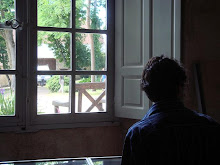Notes On Arrogance
The duress that is contained within the anecdote that is to follow is one that has been afflicting the innermost of ailments and convictions lately within me.
The problem thus with the fact that a lesson which precedes lunchtime leaves the stomach not only hungry but empty to the point where one feels as though it was a grand Zeppelin filled with worthless helium.
Therefore, the problem, most of all, is that one does not stray too far from abandoning the course of the lesson and all its themes which as this emptiness progresses, become increasingly without substance.
This is the absolute last thing you need because if this very lesson is history, then an empty stomach is ultimately synonymous with an empty registry of attention.
Even the majestic subject of our intense study, Napoleon, has to be extra zealous to inspire any whatsoever interest within oneself.
As we were discussing and getting to grips with the points of the 1801 Concordat between Napoleon and the Pope, I became not so much fascinated by these ‘fair’ points and stipulations (which by the way, when it comes to history, the most tedious of all themes is the multitude of points and agreements made in treaties etc.) but with the fact that all the points of the Concordat were unashamedly in favour of Napoleon.
I became internally agitated when the teacher (objective as ever) remained so purposelessly neutral that it almost seemed comical because the vacuum that was this most illustrious silence was marked with a general lack of comprehension and reluctance to admit the pure, holy truth of the matter (typical characteristic of a student of any age).
The Concordat, without unnecessary elaboration, was essentially a reconciliatory agreement between the Pope and Napoleon which basically gave the French leader immense clerical and religious power and certain peace when it came to the not at all unusual feud between Roman Catholicism, Protestantism and the Jews which were all allowed in the process, to preach their faith without the worry of being imprisoned because of their conscience.
But what irritated me considerably was this precise sparseness when it came to summing out the Concordat. Indeed, I felt as though the whole class needed to be aware that it was a fundamental ‘rip-off’ for the Pope, this very agreement.
As a result of this sudden burning desire to make a distinct point myself, I proposed the logical argument that what the Concordat and its meaning purported was the fact that Napoleon ultimately aimed to deceive the Pope by providing him with assurance that he was tolerant, peace-seeking leader who was himself religious with the only innocent ambition being his desire to recognise within himself the importance of being earnest.
What the Pope failed in reality, to grasp was that Napoleon, the dictator, was all these things with large, accentuated inverted commas.
What I publicly stated in front of the teacher was something along these lines.
The Concordat was a blatant deception. A laugh in the face of the Holy Man of Rome.
I wanted to stress on this and the whole class to cease to be so unaffectedly influenced by the atrocious objectivity of the teacher, but to realise this very same truth.
I continued my argument and supported my point with the fact that Napoleon could have easily imposed these exact statements contained in the Concordat without the laborious need for contention when it came to the Pope.
The teacher however, (and I could see the aggravation caused on his slightly reddened face), cut me off sharply by saying that Napoleon sought to win the support of the people whether royalist or republican and that the Concordat acted as the official bridge that brought (for the greater part) to peace many of Napoleon’s opponents.
My argument was thus insufficient to be worthy of being noted-down.
Fair enough, just like the Concordat.
I was aware of course that my suggestion was flawed but I stoically tried to conceal this very awareness so that he thought I genuinely meant what I said.
Here comes the interesting bit.
Whilst I indeed tried to hide my awareness, I only succeeded to keep it to myself for the duration of a minute or two.
In fact, when he finished explaining the official nature of the Concordat, I felt ready to reveal the truth.
‘I know this, sir’ I said, calmly and so coolly with a solid air of arrogance.
‘I just wanted to make sure that the whole class understood what the Concordat effectively meant and I thought that by raising the issue that I raised, I could simply get you to provide me and the rest of the class with a definitive answer to the actuality that resided within the points of the Concordat.’
Teachers generally are trained well to sense the mellow arrogance of a student and my history teacher, experienced as he was, bore not exception to this rule.
Behind the ubiquitous objectivity of a teacher there lies the fright of an educated man of being momentarily surpassed by the true intellect of a much younger person. True intellect and objectivity cannot co-exist without feuds between the two. Fervent or latent, such feuds will always be present.
My point thus being:
For God’s sake, in the name of science, literature, art and history, arrogance though mostly unconscionable, is the key to the enlightenment that these four main fields should bestow upon a person, particularly a student for in the end, everyone in my history class was left as avidly entertained as startlingly enlightened.
If the world was a saddle in the excruciatingly calm and motionlessly monotonous sea, then arrogance will be the water that would keep it afloat.


0 Comments:
Post a Comment
Subscribe to Post Comments [Atom]
<< Home